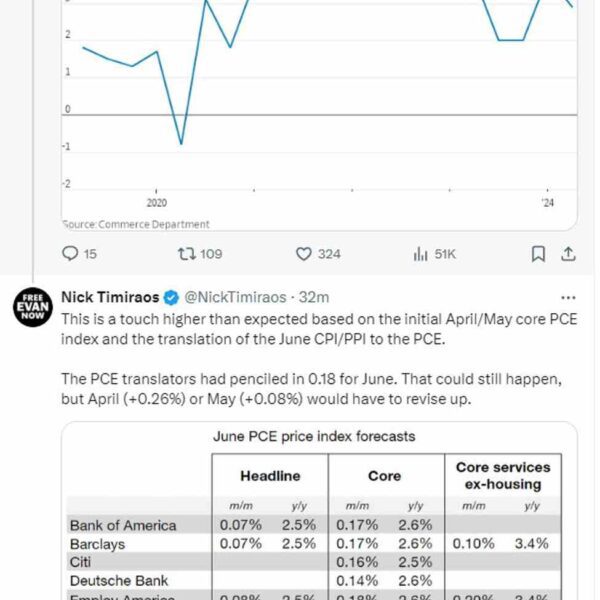

If you feel like home prices keep hitting record highs, it’s because they are. In the four weeks ending May 19, the median home price reached “a record $387,600,” according to Redfin; that’s up 4% from the prior year.
But mortgage rates are falling. The weekly average 30-year fixed rate is now 6.94%. It’s the first time it has fallen below 7% in more than a month; and just a few weeks earlier, mortgage rates hit a five-month high of 7.22%. Still, the median monthly housing payment (prior to the latest Freddie Mac mortgage rate reading) is $2,854, which is about $20 “shy of April’s all-time high,” per Redfin. At least it’s not above April’s all-time high, right?
Still, Redfin’s chief executive, Glenn Kelman, is optimistic about the latter half of 2024 “We think the housing market is going to improve over the next half of the year,” he said in an interview with CNBC yesterday. The last inflation reading came in nicely, Kelman said, and at the time we were getting closer to mortgage rates below 7%, which is a housing world “milestone,” that we’ve officially hit.
But that would be dependent on an interest rate cut, which he said most of the mortgage rate market has already priced in. “If there weren’t a rate cut, that would be a problem, and then you’d see slower growth, or even negative growth, in the housing market—but mostly we hit rock bottom in the first quarter of 2024, and I would expect the housing market to do a little bit better through the rest of the year,” Kelman said. At one point, some were pricing in three interest rate cuts this year, but as inflation proved to be more stubborn than expected, that ideal became less likely. And Fed officials are pushing for patience for that first interest rate cut.
Kelman seems to think inflation is in a more reasonable spot, that the mortgage rate market has settled, and demand is strong. Not to mention so many would-be homebuyers have held off on buying, and they don’t want to anymore.
Rents matter, too. They’re a major component of inflation, and the reason mortgage rates haven’t come down further, Kelman said. “The housing market is in some kind of difficult spiral right now, where home prices and rents are driving inflation and that drives mortgage rates, and that keeps the market kind of locked up,” he explained.
Last year, existing home sales fell to their lowest point in almost three decades, largely due to the lock-in effect, which refers to homeowners who refuse to sell their homes for fear of losing their below market mortgage rates. In April this year, they fell close to 2% on a monthly and annual basis, probably because some people are still holding on to their homes, and affordability has deteriorated. In an interview earlier this month, Kelman said: “Four million people are going to move this year; that is the lowest number that we’ve seen in many, many years, and it’s just because interest rates have been so persistently high.”
And rents are cooling in some metropolitan areas, so he does expect that to filter into future inflation readings (the Sun Belt is seeing some of the largest rent declines in the country). Either way, he doesn’t see rents “shooting through the roof,” because of how much multifamily supply has come onto the market last year and this year. Still, on a national level, asking rents rose 1% last month, which was the first increase in a year, per Redfin.
However, despite his optimism, he’s not ready to “have a party here and drink a bunch of champagne,” Kelman said. “It’s just a little bit better, it’s a little bit better—and that’s worth noting.”














